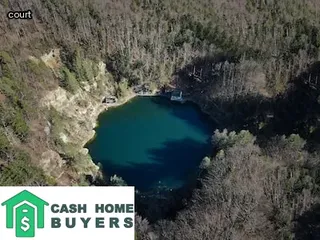Understanding the role of an Executor in North Carolina is a critical part of navigating probate in this state. An Executor, also known as a Personal Representative, is responsible for administering an estate on behalf of those named in the will.
These duties include collecting and protecting assets, paying outstanding debts, filing taxes, and distributing assets according to the terms of the will. It is important to note that depending on the size and complexity of the estate, a probate court may require additional tasks such as appraising or selling property and obtaining release from creditors or other parties.
Prospective executors should be aware that there are certain qualifications which must be met before they can serve in this capacity – such as being at least 18 years old and not having been convicted of a felony involving dishonesty or breach of trust. Additionally, North Carolina law requires executors to obtain surety bonds from an approved insurance company prior to assuming their duties.
Finally, it is imperative for prospective executors to act in accordance with all applicable laws for carrying out their responsibilities.

In North Carolina, any adult citizen of the state can serve as executor of an estate, provided they meet certain criteria. To be eligible as a personal representative for a North Carolina estate, an individual must have been named in the will or be appointed by a court.
If multiple people are named in the will, they must work together to manage the estate. In addition, a personal representative should not be someone who is likely to act improperly or fraudulently with regard to managing the estate's assets.
Furthermore, if the person named in the will is unable to serve due to mental or physical incapacity or other reasons, then another qualified individual can be appointed as executor. The person appointed must adhere to all laws and regulations concerning probate and estates, including filing applicable documents with the courts and attending court hearings that may arise during probate proceedings.
As a personal representative of an estate in North Carolina, you have various responsibilities and duties to fulfill. Your top priority is to ensure that the wishes of the deceased are carried out according to their will.
This includes identifying and securing all assets, paying off any debts, collecting any unpaid income, filing a final tax return for the deceased, and distributing the remaining assets according to the terms of the will. You must also provide detailed records throughout the process, including invoices, receipts, and other documents that demonstrate how funds were allocated.
Additionally, you must keep track of all transactions made on behalf of the estate in order to make sure there are no errors or misallocations of funds. You must also notify potential beneficiaries and creditors if necessary.
Lastly, it's important to hire an attorney who specializes in North Carolina probate law so you can be confident that all legal requirements are met during this process.

In North Carolina, the process for becoming an executor of a will, also known as a personal representative of an estate, is outlined in the state statutes. The position requires that the chosen individual be at least 18 years old and have full legal capacity to manage the estate.
Applicants are required to have lived in North Carolina for at least six months prior to being appointed by the court. The personal representative must also not be deemed ineligible due to any felonies or misdemeanors they have committed.
Furthermore, they must not have any conflicts of interest with the estate or its beneficiaries and must provide evidence that they can adequately carry out their duties. The court may refuse applicants if they do not meet these requirements or determine that another individual is more suitable for the role.
Navigating probate in North Carolina can be a complex process, especially after the death of a loved one. To become a personal representative of an estate, you must follow certain protocols.
One important step is to prepare and file necessary documents after the passing. This includes obtaining death certificates, gathering all required paperwork, submitting a petition to the court, and producing an inventory of assets and liabilities owned by the deceased.
Depending on the size and complexity of the estate, various forms may need to be filled out and notarized before submission. Once filed with the clerk of court in the county where decedent lived, it's important that you keep accurate records of all proceedings for future reference.
Additionally, you will need to make sure all creditors are paid in full or provided with adequate notice that their claims have been rejected due to lack of funds or other reasons. Taking these steps will help ensure that you complete all necessary requirements for becoming a personal representative of an estate in North Carolina.

When appointing an executor of an estate in North Carolina, there are several steps to follow. First, the personal representative should submit a petition with the court along with a death certificate and other required documents.
Next, they will need to review the decedent's will or determine if they died without a will. After that, they’ll need to give notice to all heirs and beneficiaries of their appointment by the court.
Then, they must collect assets, pay debts and taxes, and provide an accounting of all activities throughout the process. Lastly, it is important for them to file a closing document with the court once all debts have been paid and assets distributed in order to be released from their duties as executor.
It is critical for interested parties to be aware of these steps when navigating North Carolina probate law in order to ensure that all requirements are met.
Navigating probate in North Carolina is not an easy task, but with the right understanding of how it works and the help of a qualified attorney, you can become a personal representative of an estate. Probate is the process of verifying and settling a person's last will and testament after their death.
In North Carolina, the court must decide if a will is valid or not and if so, assign a personal representative to administer the estate. This individual must meet certain qualifications, such as being at least 18 years old, not having been convicted of any crime related to fraud or theft, and being either related to the deceased or appointed by them in their will.
Once appointed, this personal representative has many responsibilities. They must gather all assets associated with the estate including real property and financial accounts; manage payment of final debts such as taxes and funeral expenses; identify heirs; make sure all applicable laws are followed; account for every asset throughout the probate process; and distribute remaining assets according to the terms of the will.
While this may seem like an overwhelming amount of work, it can be made easier with proper guidance from a qualified attorney who understands how probate works in North Carolina.

Navigating probate in North Carolina can be a complex process and the type of probate process you need to use depends on several factors. Before beginning the process, it is important to understand the different types of probate processes available in North Carolina.
Regular Probate, Summary Probate, and Informal Probate are three common types of probate processes that may be used in North Carolina. Regular Probate is a formal court process, which requires more paperwork and court involvement than other types of probate processes.
In contrast, Summary Probate is a simplified administrative procedure for estates with no real estate or when all heirs agree about how to divide up the assets. Informal Probate does not require court intervention, but beneficiaries must still sign an affidavit agreeing to the distribution of assets before any inheritance can be released.
No matter which type of probate process you choose, there are certain requirements that must be met and an experienced attorney can help guide you through the steps involved in navigating North Carolina probate proceedings.
Navigating North Carolina probate can be a complex and daunting process, particularly when it comes to becoming a personal representative of an estate. Knowing when to enlist the help of a professional is key in order to ensure that the probate process is completed accurately and efficiently.
Most people will require assistance at some point during probate, whether it’s to understand the state’s legal requirements or to calculate and settle taxes due on the estate. It’s also beneficial for those without prior experience in dealing with property distribution, wills, trusts and other related matters.
Professional advisors can provide advice on how best to handle these issues, ensuring that all parties involved are satisfied with the outcome. Additionally, they can assist with managing any disputes that may arise during the course of administering an estate, as well as represent individuals if they become involved in litigation over inheritance rights or other matters concerning a deceased person’s estate.
Therefore, seeking out professional help during probate can be invaluable for those looking to make their way through North Carolina’s complicated legal system.

Navigating North Carolina Probate can involve a range of processes, from understanding the role of a Personal Representative of an Estate to becoming familiar with other estate administration practices in the state. It is important to have knowledge of how to qualify for and fulfill the duties of a Personal Representative, as well as be aware of different procedures and regulations that may affect your estate management responsibilities.
For example, if you are managing an estate without a will (also known as intestacy), then it is essential to understand the rules governing intestate succession in North Carolina, such as how title passage works and who is eligible to receive assets from the estate. Additionally, there are various forms and documents that must be properly completed in order to file with the court and complete probate proceedings.
Knowing all these elements helps ensure that your probate process is managed effectively and efficiently. Understanding these processes can also assist those looking for ways to reduce taxes owed by an estate or minimize potential conflict among heirs by helping them create a clear succession plan ahead of time.
Gaining insight into other North Carolina estate administration processes provides individuals taking on this responsibility with vital information needed for successful probate navigation.
In order to become an estate administrator in North Carolina, there are a few steps that must be undertaken. First and foremost, the individual seeking to serve as an estate administrator must be nominated by the court or chosen by the will of the deceased.
Once nominated, the individual must fill out and submit all relevant documents including a Petition for Probate and Letters Testamentary. This petition requires that information specific to the estate is included such as assets, liabilities, and heirs.
Additional paperwork may also be required such as a Death Certificate or Affidavit of Heirship. After these documents have been properly completed and submitted, the court will review them and make a determination on whether or not to appoint an executor or personal representative for the estate.
If appointed, it is then their responsibility to carry out the wishes of the deceased in accordance with North Carolina probate laws. Understanding these steps is essential in successfully navigating North Carolina probate when becoming an estate administrator in North Carolina.

Navigating North Carolina probate can be a daunting process for anyone unfamiliar with the laws and regulations. If you are considering becoming a personal representative of an estate in North Carolina, you may be wondering how long it takes to become administrator of an estate.
Generally, the timeline for becoming administrator of an estate in North Carolina is determined by the complexity of the case, but typically takes anywhere from three months to a year. The time frame also depends upon whether or not all heirs consent to the same executor.
In cases where heirs do not agree on who should act as personal representative, court approval will be needed and will extend the amount of time necessary to complete the probate process. To begin navigating the NC probate process, individuals must first gather all necessary documents and submit them to their local probate court.
Once documents have been submitted, they are reviewed by the court and if accepted, letters testamentary are issued appointing a personal representative. After this point, collecting assets and paying creditors is usually done within 90 days; however complex cases can take up to six months or longer before they are resolved.
In North Carolina, a person may qualify to be an administrator of an estate if they are over the age of 18 and not currently a minor or otherwise incapacitated. Those who may serve as administrators include family members, friends, and professional fiduciaries such as attorneys and accountants.
While there is no requirement that the administrator be related to the deceased individual, anyone seeking to become an administrator must meet certain criteria set forth in North Carolina state law. The prospective administrator must have had a residence in the state for at least three months prior to the death of the decedent, or demonstrate good cause for not meeting this residency requirement.
An applicant must also submit documents showing that they are entitled to administer the estate according to North Carolina law. Once approved by the court, administrators are responsible for carrying out all tasks associated with probating an estate including inventorying assets, settling debts, filing necessary paperwork with state and federal agencies, distributing assets according to applicable laws, and ensuring all taxes are paid on time.
Navigating North Carolina Probate: A Guide To Becoming A Personal Representative Of An Estate provides comprehensive information about who can serve as an administrator of an estate in North Carolina and how to go about doing so.
In North Carolina, if someone passes away without a will, their estate is administered according to the state's laws of intestate succession. If the deceased had no living relatives, the state may appoint an administrator to manage the estate.
To become an administrator of an estate without a will in NC, you must petition the court for Letters of Administration with Will Annexed or Letters of Administration. The process of navigating North Carolina probate can be complicated, so it is important to know how to become an administrator and understand your rights and responsibilities.
In most cases, you must be over 18 years old, a resident of North Carolina, and have no criminal record in order to qualify for appointment as an administrator. You will also need to provide proof that you are related to the deceased person or provide evidence that there are no living family members who are able to serve as administrators.
After filing the appropriate paperwork with the court clerk’s office in the county where the deceased lived at the time of death, a hearing will be held by a judge who will make a decision regarding your appointment based on testimony presented at that hearing. Once you have been appointed as personal representative/administrator of an estate without a will in NC, you have several duties including collecting and inventorying assets; notifying creditors; settling debts; distributing assets according to law; filing taxes; and ultimately closing out the estate.
It is important to remember that becoming an administrator carries certain legal responsibilities and obligations which require full disclosure so it is wise to consult with an attorney or financial advisor throughout this process.
In North Carolina, the cost of administering an estate varies depending on the complexity of the estate. Generally, the larger and more complex the estate, the greater the costs associated with estate administration.
The most common costs charged include filing fees, which can range from $30 to $400; attorney fees which can range from $250 to $10,000; and probate court fees which may range from $200 to $2,000. In addition to these costs, a personal representative is also responsible for any debts or taxes owed by the deceased person’s estate.
As such, it is important for a personal representative to familiarize themselves with how much North Carolina charges for estate administration before taking on this role.
In order to become a personal representative of an estate in North Carolina, you must first obtain a letter of administration. This is a legal document that authorizes you to act as the representative of the deceased person's estate.
In some cases, this letter is referred to as letters testamentary. Obtaining this letter involves filing an application with the probate court in the county where the decedent resided at the time of death.
The application must be signed by all of the potential heirs and beneficiaries, or their attorneys if they are represented by one. After filing your application, you must attend a hearing before a judge who will review your petition and grant you permission to serve as personal representative if everything is in order.
Once your appointment has been approved, you will receive your letter of administration from the court and may begin handling all matters related to the estate.